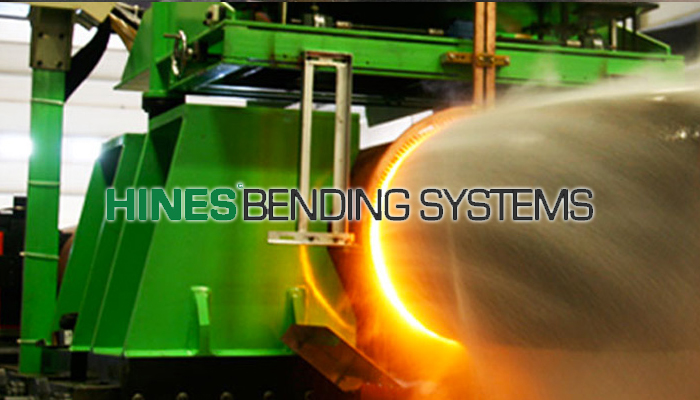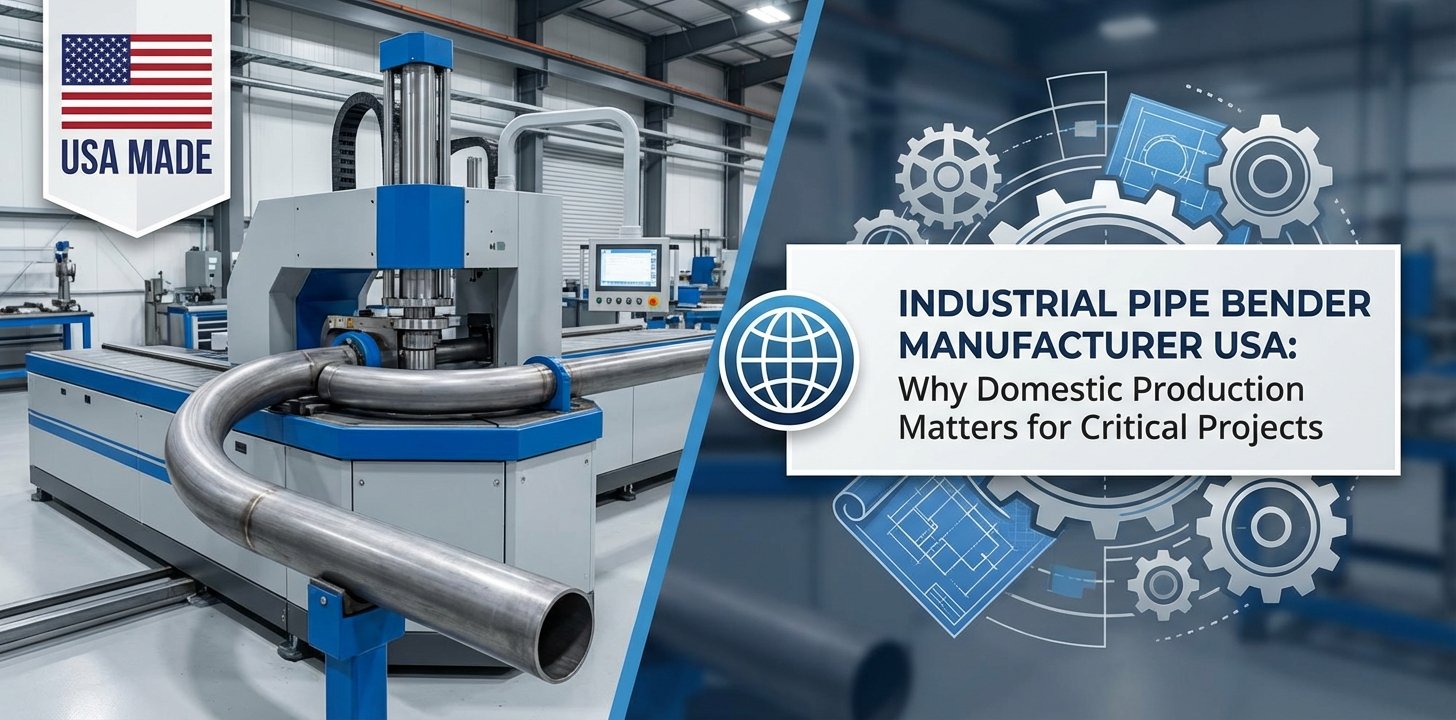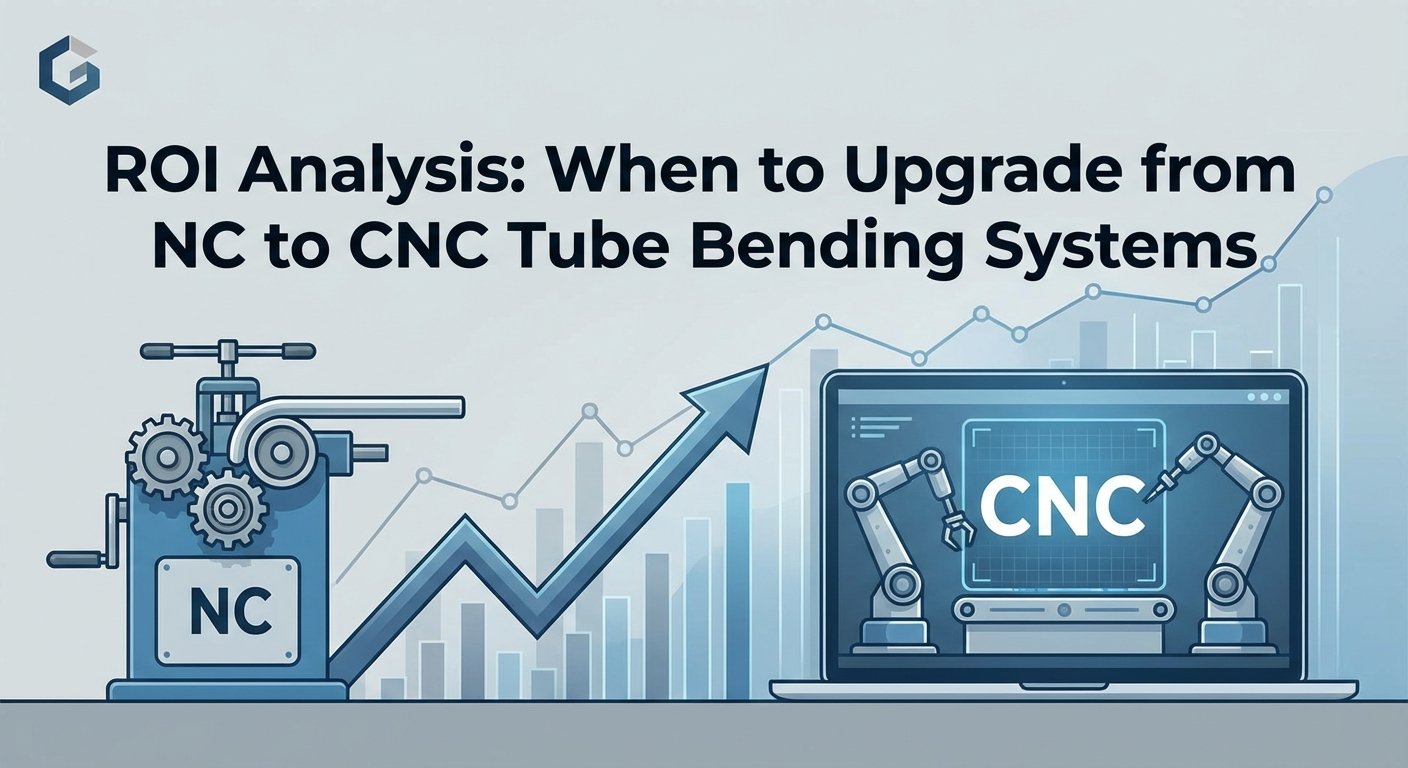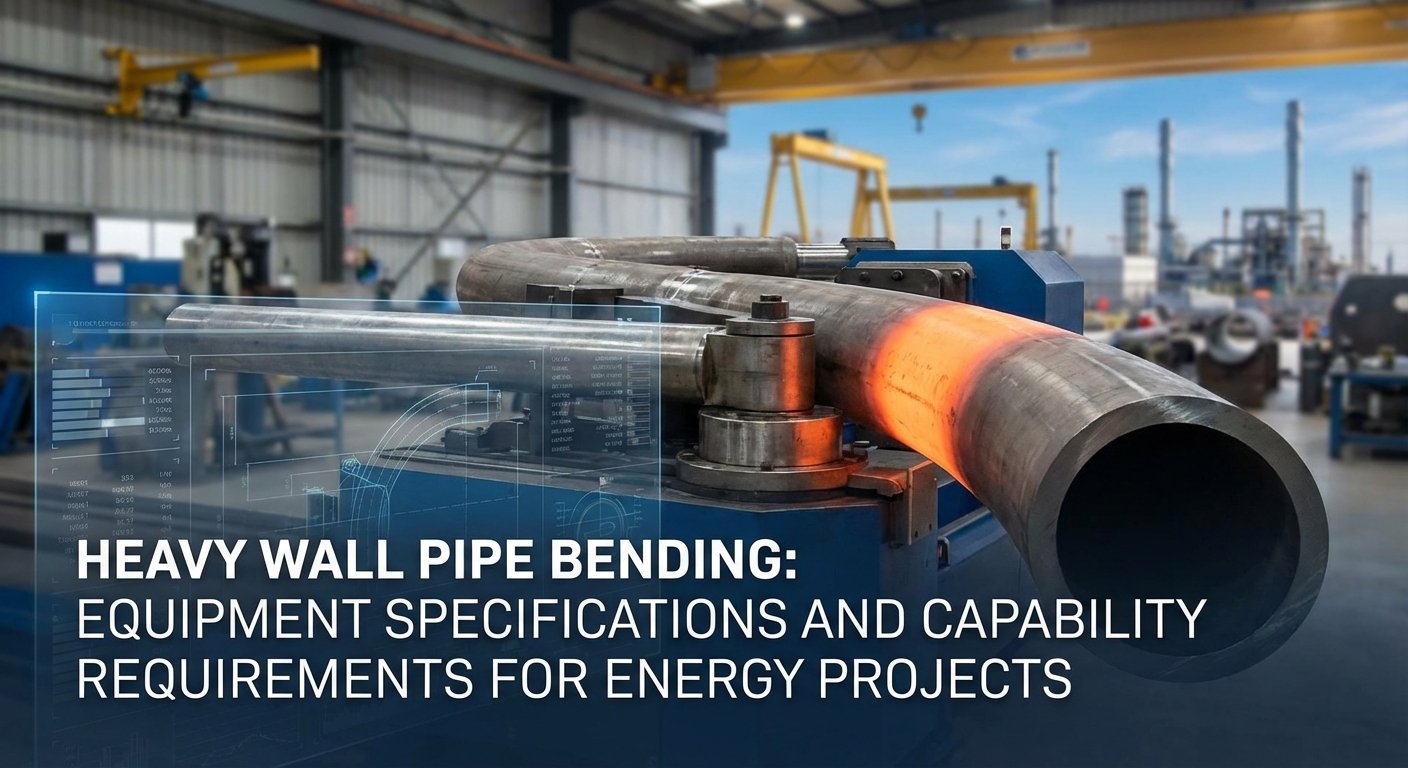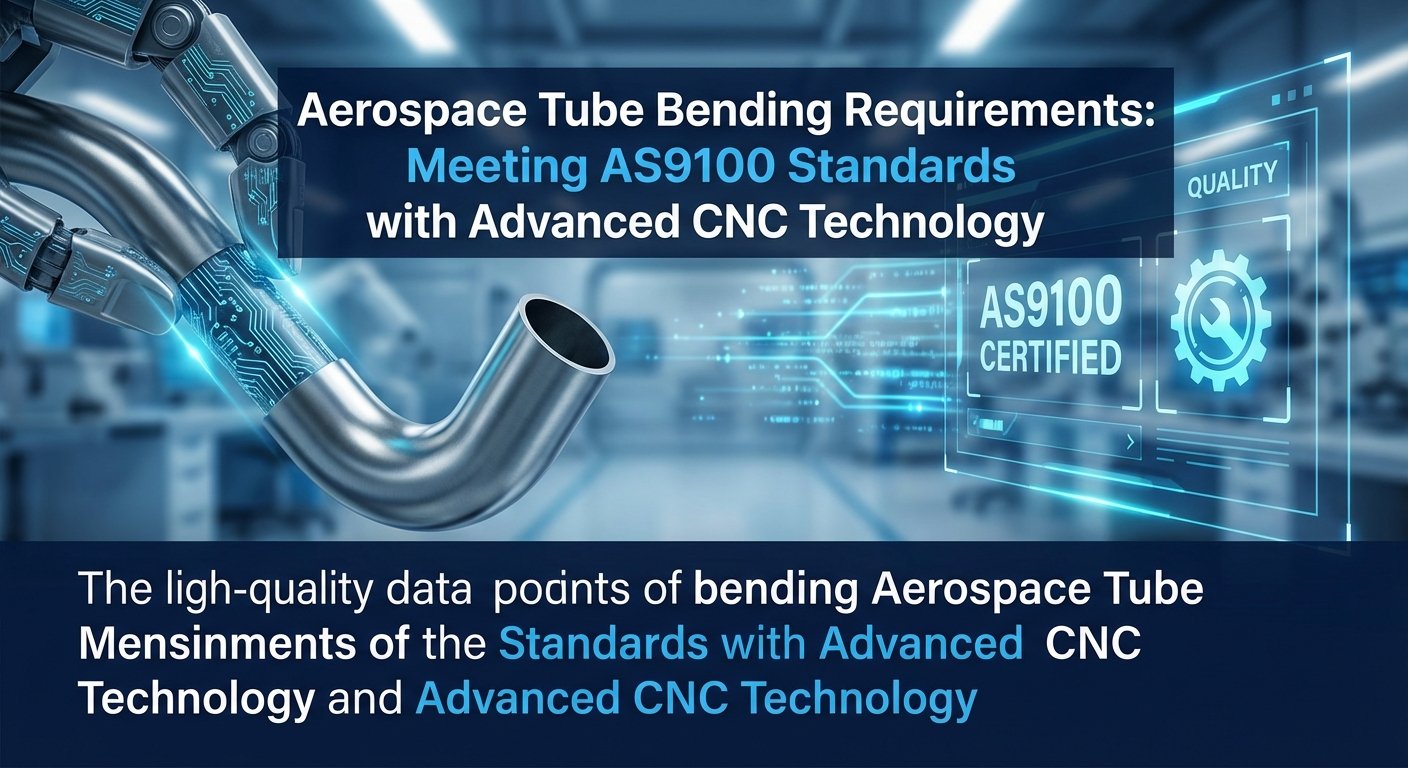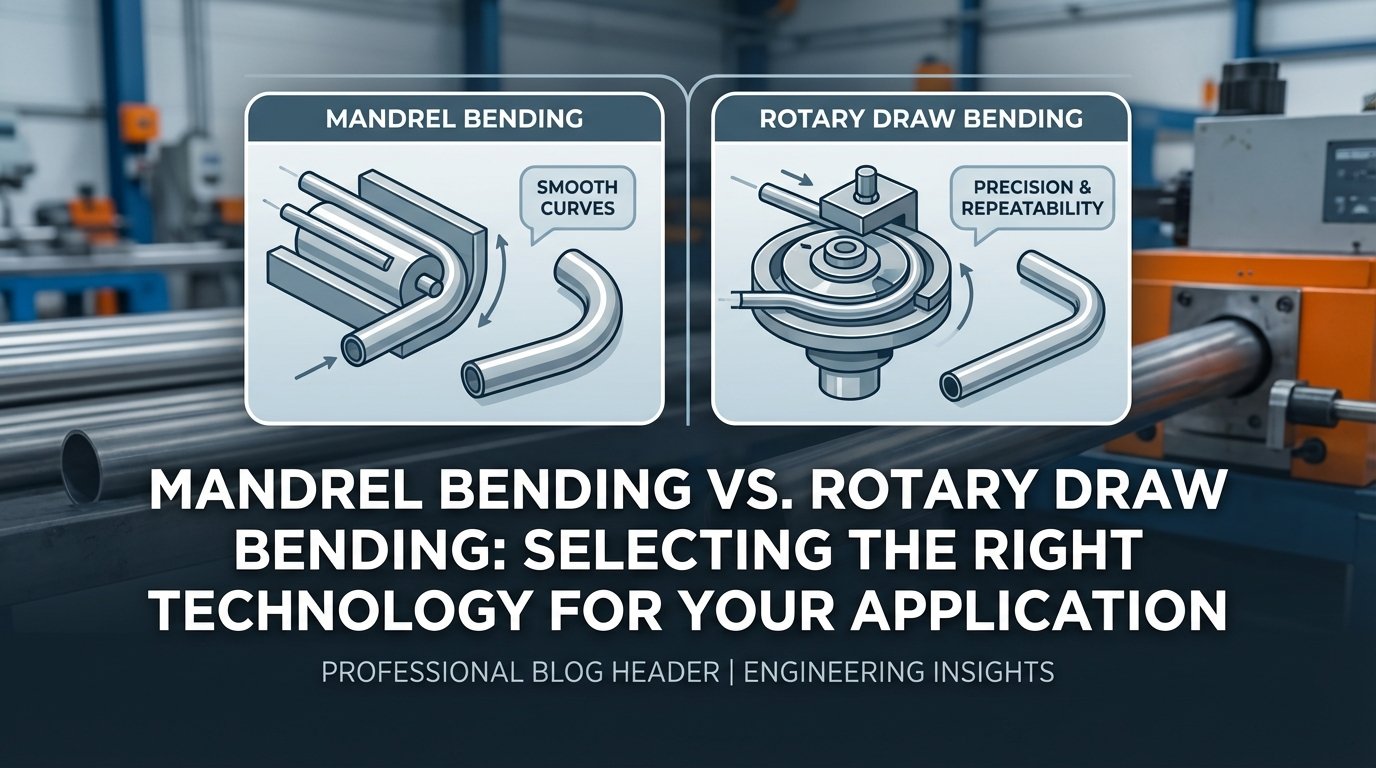Heat induction bending is a fully automated process of hot bending, which uses an induction bending heating coil to bend the material. The induction bending coil creates a narrow, circumferential, heated band around the material to be bent while a clamp holds the material to its specific shape on a pivoting arm to the desired radius.
When the appropriate temperature is reached, the heated tube/pipe material is shaped into a bend as it is pushed forward through the induction bending coil at a consistent speed and temperature. After the material passes through the induction bending coil, and the heat induction bending portion is complete, the bent tube/pipe is cooled by forced air or water, or it may be allowed to cool naturally at ambient temperatures.
Why Use Induction Bending?
Induction bending offers a unique advantage compared to cold bending. With large outside diameter and thicker wall material, induction bending keeps ovality and wall thinning percentages critical for passing inspection processes required in many industries, notably Petrochemical, Oil & Gas and Power Plants.
In addition to the bending quality achieved with ovality and wall thinning, heat induction bending allows for variable radii from large to small, even on certain bending requirements as tight as 1.5D radius. With hot bending and the right induction tube bender, this all becomes a clean, operator friendly operation.
The companies that now provide heat induction bending in-house immediately boast the time-saving benefits over welding. With hot induction bending, part quality is also praised in this process especially as the reduction of welding creates a better part overall while cutting costs on production and the inspection process.
Induction bending is perfect for forming of tube and pipe for a variety of applications and industries as highlighted below:
- Petrochemical
- Thermal or nuclear power plants
- Mining
- Agro-food
- Paper
- Oil and gas (onshore and offshore pipelines)
- Highway billboards
- Structure construction
- Solar companies
- Shipbuilding
Why is an Induction Bending Consultation Important?
Having a flexible approach to Induction Bending, which yields dramatic improvements in plant utilization and overall production, is paramount in the purchase of your Induction bending machine. Consider if the consultation covers all of your bending and machinery questions along with offering new or improved solutions to your hot bending requirements.
The communication process should be designed to address each unique job and your specific facility requirement. For example, Hines Bending Systems offers two options for installation.
With the space requirements of hot induction bending machinery, it pays to have choices best suited for your foundation and daily operations. It also pays to work with a company who are experts in the industry and ask you all the right questions moving forward to your purchase.
